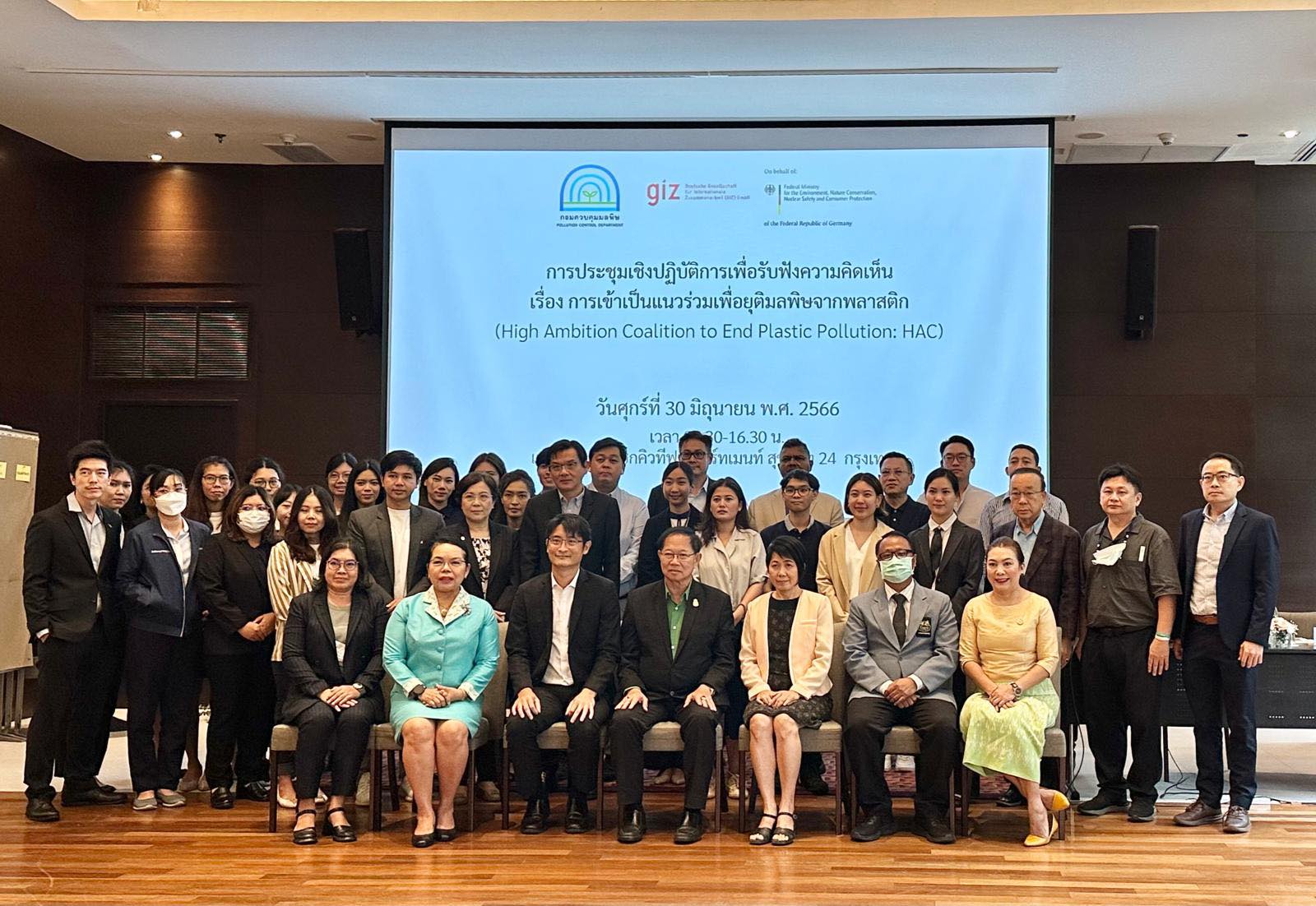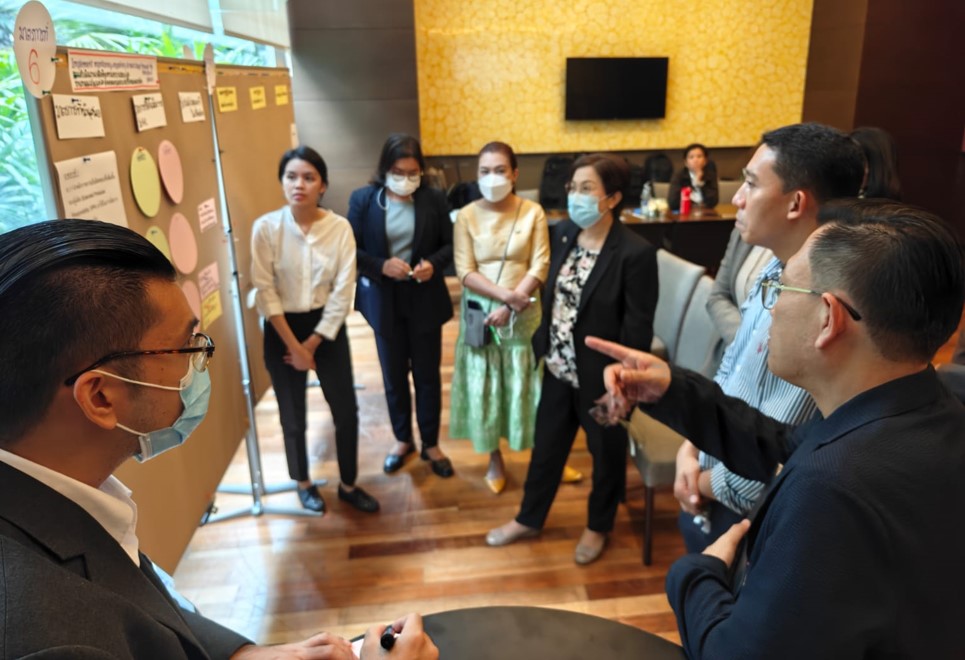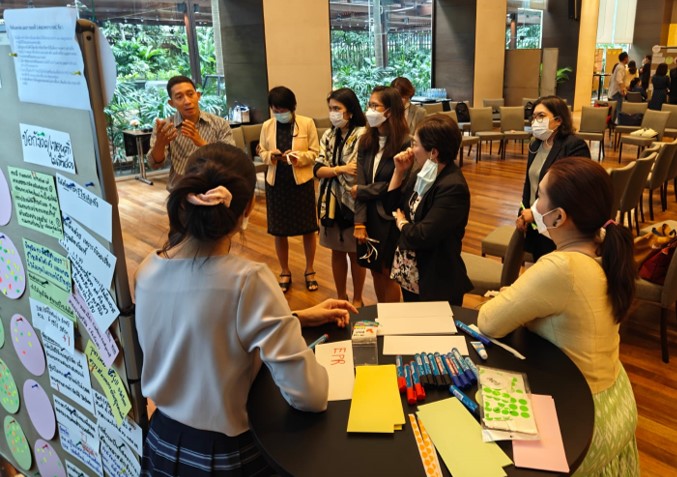Thailand Explores Joining Global High Ambition Coalition to End Plastic Pollution

The Pollution Control Department (PCD), in collaboration with the Deutsche Gesellschaft für Internationale Zusammenarbeit (GIZ) under the MA-RE-DESIGN project, organised the stakeholder consultation workshop on Thailand’s participation in the High Ambition Coalition to End Plastic Pollution (HAC) on 30th June 2023. The workshop was attended by more than 40 participants from the government, the private sector, academia, and non-profit organisations, including Mr. Pinsak Suraswadi, PCD’s Director-General.
The High Ambition Coalition to End Plastic Pollution (HAC) is an international coalition that was initiated by Norway and the Republic of Rwanda with the goal of ending plastic pollution by 2040, as outlined in United Nations General Assembly Resolution 5/14 titled “End plastic pollution: Towards an international legally binding instrument”. This is currently under discussion by the Intergovernmental Negotiating Committee (INC) to formulate legally binding measures among countries to address plastic pollution, including marine environments. Various countries have been invited to join as members and collaborate in preventing and managing plastic pollution. As of June 2023, more than 58 countries have already become part of this coalition.
In the workshop, experts from PCD’s Waste Minimisation Sub-Division presented Thailand’s Phase 2 Plastic Waste Management Action Plan (2023-2027) and the country’s efforts to participate in the HAC. Additionally, the workshop featured the HAC’s seven key deliverables, aligning them with measures from the Phase 2 Plastic Waste Management Action Plan presented by the project’s consultants. The HAC’s seven key deliverables are: 1) Eliminate problematic plastics, including bans and restrictions; 2) Develop global sustainability criteria and standards for plastics; 3)Set global baselines and targets for sustainability throughout the lifecycle of plastics; 4) Ensure transparency in the value chain of plastics, including material and chemical composition; 5) Establish mechanisms for strengthening commitments, targets, and controls over time; 6) Implement monitoring and reporting at each stage through the lifecycle of plastics; and 7) Facilitate effective technical and financial assistance, scientific and socio-economic assessments.
Based on the measures contained in the Phase 2 Plastic Waste Management Action Plan that are suitable and align with the seven key success factors under the HAC, and the process of gathering feedback, participants in the meeting acknowledged that Thailand has measures and policies driving plastic waste management in line with the HAC’s key deliverables. However, the attendees expressed concerns and provided recommendations on certain aspects of these measures to the Pollution Control Department for consideration prior to joining the HAC and for enhancing the effectiveness of the next steps and plan implementation. In the following steps, the Pollution Control Department will take the data collected from the meeting for analysis and processing, to present to the Pollution Control Committee and the National Environment Committee for Thailand’s future participation as a member of the HAC.


Chanoksuda Pongsawang
Project Advisor, MA-RE-DESIGN
Email:chanoksuda.pongsawang(at)giz.de